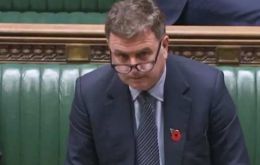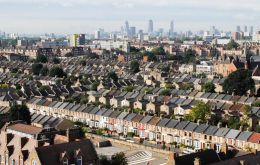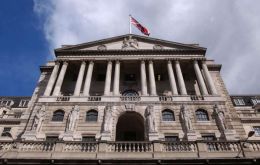MercoPress. South Atlantic News Agency
Tag: UK households
-
Wednesday, September 20th 2023 - 08:17 UTC
Tories handing out cost of living winter support for millions of low income British households

Millions of low-income British households will receive the next installment of cost-of-living payments between 31 October and 19 November. Eight million people on means-tested benefits, such as Universal Credit, will receive £300 directly, without the need to make a claim. It is the second of three installments that will eventually total £900.
-
Saturday, December 3rd 2022 - 07:00 UTC
Increase in food costs for the average UK household because of Brexit, LSE paper Brexit a

Brexit added £210 to the average British household food bill in the two years to the end of 2021, according to a new academic paper from the London School of Economics (LSE), with price rises hitting the poorest families.
-
Tuesday, July 24th 2018 - 06:35 UTC
Some eight million of UK “just managing families” no better off than in 2003

Millions of “just about managing” families are no better off today than those in 2003, new research from the UK's Resolution Foundation indicates. The remarkable income stagnation for so many reveals that the British economy has been failing to generate income for people over many years despite record levels of people in work.
-
Friday, February 9th 2018 - 10:45 UTC
Bank of England expects pace of interest rate increases to accelerate

The Bank of England has indicated that the pace of interest rate increases could accelerate if the economy remains on its current track. Bank policymakers voted unanimously to keep interest rates on hold at 0.5% at their latest meeting. However, they said rates would need to rise “earlier” and by a “somewhat greater extent” than they thought at their last review in November. Economists think the next rate rise could come as soon as May.
